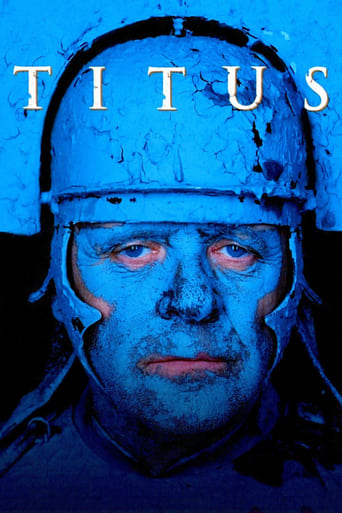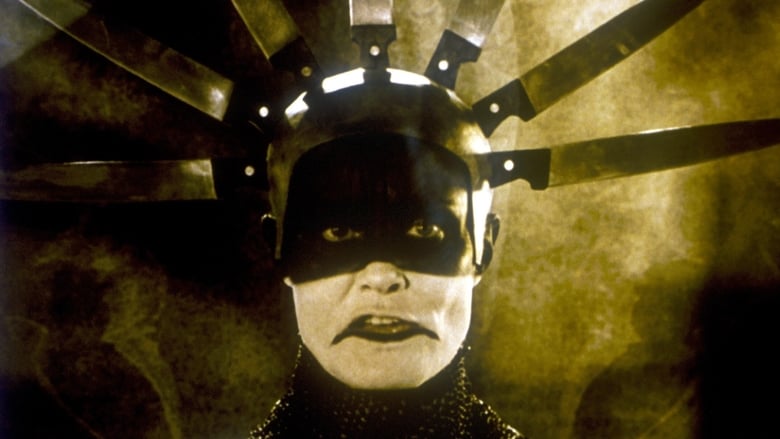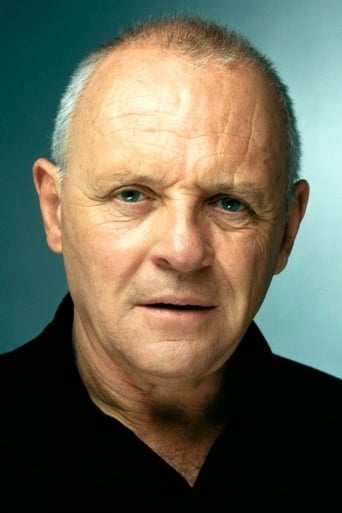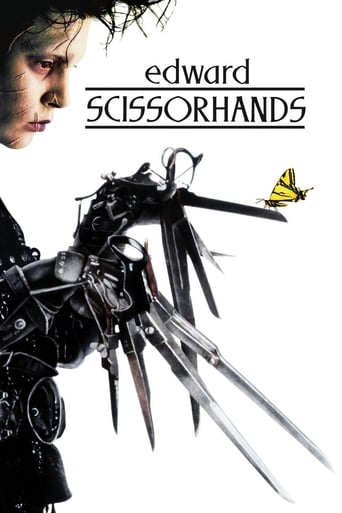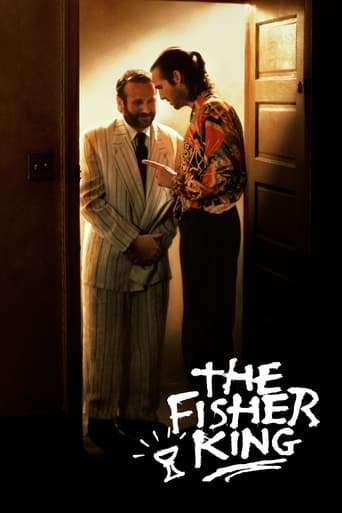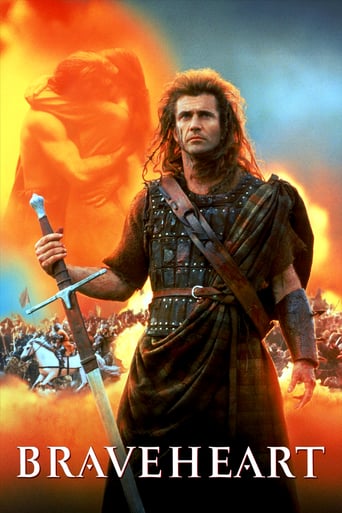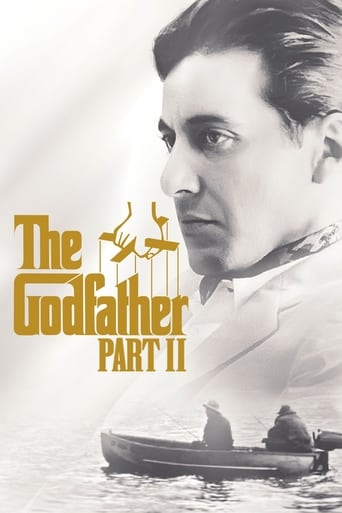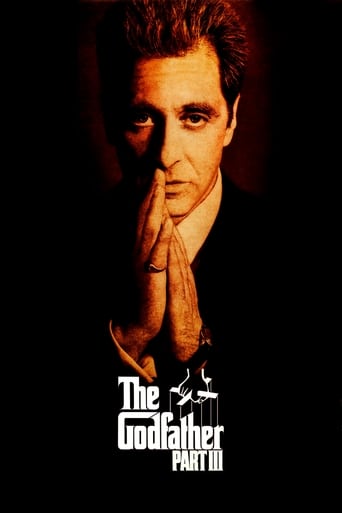Titus (1999)
Titus Andronicus returns from the wars and sees his sons and daughters taken from him, one by one. Shakespeare's goriest and earliest tragedy.
Watch Trailer
Cast


Similar titles
Reviews
for me, Titus Andronicus remains the most shocking, provocative, cruel, ferocious, sarcastic, horror text of European literature. the perfect example of the fight of Shakespeare against his public. the film is a loyal adaptation. and fascinating for the science to explore the essence of play. impressive inn scenes, fragments from Satyricon by Fellini, Anthony Hopkins, the inspired introduction and end. the irony about the glory of Rome, Alan Cumming as the perfect Saturninus, the force of each scene,a Lavinia who, in strange manner, reminds Ophelia and an Aron useful for new nuances of Othello. a great show who seems be perfect because the large, eccentric throne under the huge head of wolf of Saturninus , the electoral campaign, the stones of way, all are Shakespeare in the most impressive manner. a film who impress for each detail- costumes,kitsch, choreography, landscapes, camera angle.
There are artsy movies, and then there's Titus. Titus was like to the movie "Fountain" directed by Aronofsky. It focused so much on visuals that the plot and substance of it was more of an undertone to the monstrosity that it was. Titus made everything that happened symbolize something greater, which is a horrible offense to a movie. Symbolism, when used sparingly, can convey themes much larger than the medium that they exist in. However, if everything that happens in a movie conveys that symbolism, it makes even the most meaningful parts of the movie meaningless. Another major problem I had with this movie was the pseudo realism. Not only were there roman-style soldiers all over the place in the beginning, but there were also 40s styled cars and motorcycles, along with microphones from the same era. This only adds to confusion, it conveys little meaning to the actual movie. It only succeeds in annoying the viewers- or at least the viewers who aren't into pretentious art- movies. All of the characters seemed flat, even those played by big-name actors like Anthony Hopkins. Part of the problem with this is, admittedly, the script. It takes impeccable acting and directing to create complex characters out of the script that was written by Shakespeare. If the directing and/or acting is poor, then the dialogue will sound awkward, because nobody speaks in Shakespearean English now. As the directing and the acting was poor, the entire movie was just one awkward transition to the next. From what I was told about this movie (I saw it in a Drama class after we finished reading the play) the budget was relatively low, so the visual effects were, as expected, not that great. But the thing is, the only visual effects that you would really need in making this movie would be what it would take for the gore scenes. The beginning choreography with the roman soldiers was unnecessary and confusing, the explosion in the opening scene was confusing, and all of the over-the- top costumes were annoying, especially Saturninus', Tamora's, and Chiron and Demetrius'. Really, this movie would've been so much better if the visuals conveying characters' thought were scratched, and if the director had chosen which time period the movie would take place in. Another huge problem that this movie had was the scene where Marcus finds Lavinia. There was surprisingly little blood (except for when she did this weird thing where she turned around and spat blood at Marcus in slow-motion), and her hands had been replaced by branches. I found this odd, because I don't think that Chiron and Demetrius would bother with doing this. I know hat this is supposed to be a take on the line saying, more or less, that she had been rid of her branches (meaning hands), but if she had lost her hands, and the text says branches, how does it make sense to put actually branches on her arms instead? "Titus" also over-glorified the character of Young Lucius. I've been told by many of my friends who were in the same class that this character is supposed to show how this kind of tragedy affects someone, and to make it less confusing when Young Lucius first shows up, but both are invalid arguments. It only makes things confusing. First of all, I would like to point out that it's not really that weird that Lucius "randomly" shows up halfway through the play. It actually makes sense, because a child would not be present at the ceremonies occurring in scene one of the text, the hunt, or the trial of the other two sons (the ones who were executed, I forgot their names). Young Lucius' omnipresence actually makes thing more confusing, because he doesn't talk until much later, and even the quietest kids would speak after seeing many of the things that happened, especially Lavinia after she's raped. One of my least favourite parts of the movie was the opening scene. When the movie starts, you think you're watching the wrong one, because it's some kid in a 40s or 50s style kitchen, making a mess of things with some action figures that resemble the characters that you meet later on. Then, there's an explosion, and some hulking guy just appears out of nowhere, and carries this kid down this really long staircase that likewise appeared out of nowhere, that leads to the Colosseum. This leaves you wondering as to what had just happened. Is the kid in some kind of coma? Has this actually happened? Is it all a dream? When is the movie going to start? It takes about 7 minutes of opening credits and marching soldiers in pseudo Ancient Roman armour, marching around in a display at, what you find out to be, their return from war against the Goths. I already had taken issue of the sudden switch from 40s/50s to Ancient Rome in such a bizarre way, that the existence of mummies in ancient Rome really annoyed me. I found the entire movie to be filled with annoyances like that. Basically, this was a horrible movie that no one should ever have to see, unless they want a movie filled with bad visuals, "artsy" cello music, and horrible acting and directing.
This is an incredibly gruesome movie, but then again the play upon which it was based is also incredibly gruesome. Titus Andronicus, the Shakespearian play upon which this movie is based is actually one of his least popular ones, so when I discovered that somebody actually made a movie of it I was thrilled, and it thrilled me even more when I saw it and was absolutely astounded by it. Anthony Hopkins plays the role of Titus Andronicus absolutely beautifully.The play is set in Imperial Rome, though the actual period is very speculative. It is suggested that it could be at its height as Titus has returned from a successful campaign against the Goths, and it could be near the end as the movie finishes with an invasion of the Goths. However I would be hesitant to call it an invasion simply because Lucius is asked to go to the Goths and raise an army to help Titus seek revenge for the crimes committed against him and his family. The story itself is fictional, however it is not something that Shakespeare created himself (The Tempest is his only original work). There are also numerous references to Greek mythology, particularly the cannibalistic meal at the conclusion.Titus is a movie about vengeance, and it is more so than Hamlet because most of the characters have a bone to pick with at least one of the other characters. In fact it is about how being consumed with hatred and vengeance is a vicious circle with is constantly descending until there are no survivors. The Emperor Saturninus is vengeful because he has been denied the woman that he wants, simply because she loves his brother, but because he has been denied, he takes it out on Titus, a loyal and faithful general. The Goth Queen seeks vengeance because Titus sacrificed her older son despite her pleas, and when she exacts her revenge upon the Adronici, she earns Titus' wrath.The play seems to shift about halfway through, and I believe the cinematography captures this brilliantly. The movie does not set the action in a set time or place, it is the modern world, but it is a world torn apart by violence and anger. It is still Rome, but it is a Rome of the imagination, and the movie is bookended by scenes of the action taking place in a Colosseum, which places the film clearly into the realm of the imagination. This is good as it is further distancing ourselves from the violence erupting within the film. It has also been said, by the director, that the entire film is seen through the eyes of a child. In the play the child plays a minor role, but in the film, he is ever present. It opens with the child playing with toys, but the play becomes ever more violent, and in fact the entire room in which the child is explodes in a ball of fire, indicating the violence that is about to swallow the lives of the Andronici.The centre piece of the play is where Titus is pleading for the lives of his sons. He has previously killed a son, has seen his daughter raped and mutilated, and then watches with helplessness as two of his sons are lead off to be executed. It is all apart of the Queen's plan to destroy Titus' life. In this scene his brother, Marcus, is encouraging Titus to slay himself, this was common in the Roman Empire when somebody had been dishonoured and his life had been destroy. However Titus is strong in will, and will not desert those who have been wronged. He knows that he has been dishonoured, but he knows that to kill himself is to give up, and especially leave his beloved daughter unavenged.There seems to be no redeeming features in any of the characters, though none of them are strictly villains. Even Aaron, the Moor and the Queen's lover, is motivated by jealousy in that his lover has been stolen from him. However he considers himself a wicked man, and when he faces execution he is more that willing to spill his guts that to remain loyal. However, when he is finally given his punishment, he even repents of any good deed that he may have done. I don't sympathise, or even empathise with any of the characters. True, Titus has shown nothing but loyalty to his emperor, but has only been a victim of circumstance, or so it seems. The key here is the sacrifice of the Queen's son. Granted, human sacrifice was not tolerated in Rome, at all, that is one of the reasons they went to war with Carthage, so it is tempted to believe that Titus went overboard, until we consider the play. Titus is convinced that it is something that he needs to do, and he cannot back out of it, though I still cannot help thinking that maybe, just maybe, the sacrifice of a human was not necessary.
Titus is a film that does have a certain allure but it alienates just as much with its peculiar segments within the film. For all its gusto and confidence Titus fails to be as poignant as it could be.The period is created with a flurry of modern additions, which at times does not look that far out of context with the overall picture but would have been better to maintain in its intended setting. Indeed the inclusion of Lucius, a young boy who is ignored and then brought into the film (you will understand if you see the film)is rather bizarre and unexplained progression, which I did not like.Harry Felix and Angus MacFadden are the stand out performances with Anthony Hopkins and Alan Cummings giving powerful displays which are both hindered by the over dramatics created in the film. The score is at times too over-the-top to take seriously, and the story is dark and harsh which will quell people's potential enjoyment.Titus for all its art and craft manages to sustained itself through its strong acting but its bravado is too much to be able to palate in reasonable proportions.

